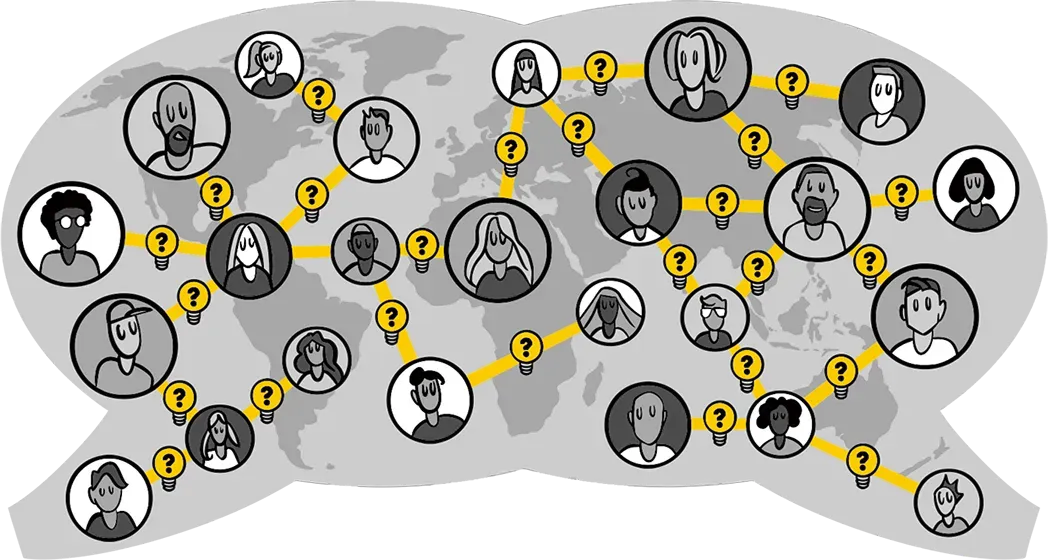Navigating Divisive Topics Respectfully
Foster Understanding Through Thoughtful Dialogue

How Street Epistemology Addresses Cultural Challenges
Street Epistemology (SE) offers a structured approach to navigating polarizing cultural issues through respectful dialogue and critical thinking. By focusing on understanding and empathy, SE practitioners engage thoughtfully with divisive topics like political polarization, social justice, and cultural differences. These techniques foster mutual respect, helping to bridge divides and reduce conflict in contentious conversations.
SE equips individuals with tools to question assumptions, address biases, and explore polarizing beliefs constructively. This approach transforms heated debates into meaningful discussions that promote clarity, understanding, and progress. Whether discussing gender identity, race relations, or political ideologies, SE provides a pathway for constructive conversations on the most challenging topics. Learn about the value of SE in fostering meaningful dialogue on difficult issues.
Find the Best Fit for You
You've landed on a page about Street Epistemology, a way of helping people reflect on the quality of their reasoning through civil conversation. Take our free self-paced course called Navigating Beliefs or learn more about the organization behind these world changing projects.

Street Epistemology
International
The organization behind the development of the Navigating Beliefs course, supporting Street Epistemology's practice and offering resources for critical thinking and civil conversation.
Explore SE tools for engaging respectfully and thoughtfully in cultural and political discussions.

Exercises for Handling Contentious Topics
Constructive dialogue on divisive issues requires intentional practice, and SE provides exercises to refine these skills. Activities like challenging assumptions respectfully, questioning polarizing beliefs, and addressing biases encourage thoughtful exploration of cultural topics. These exercises foster empathy, improve communication, and create a safe space for meaningful dialogue.
For beginners, tools for respectful communication and strategies for navigating contentious debates provide accessible entry points. Advanced practitioners can focus on addressing political polarization, exploring cultural stereotypes, and resolving disagreements through dialogue. These resources help individuals engage thoughtfully with challenging issues and foster understanding across divides. Learn from real-world examples of SE in action to enhance your approach to cultural conversations.
Exercises for Fostering Learning and Growth
Teaching critical thinking and dialogue skills requires interactive and reflective exercises. SE provides activities that encourage students to question assumptions, analyze arguments, and develop reasoning abilities. From exploring logical fallacies to examining personal values, these exercises promote intellectual growth and improve interpersonal communication.
Beginner-friendly tools like questioning techniques and self-reflection exercises are ideal for introducing critical thinking concepts, while advanced strategies like belief analysis and empathy-building exercises challenge learners to deepen their understanding. These resources help educators create an engaging, inclusive, and transformative learning environment. Discover audio discussions that provide insights into using SE for teaching and learning.

Free Learning Course for Constructive Dialogue
Want to engage respectfully on contentious topics? The Navigating Beliefs course provides Street Epistemology tools for fostering empathy, questioning assumptions, and resolving cultural conflicts through thoughtful dialogue.
GO TO COURSE ➔



